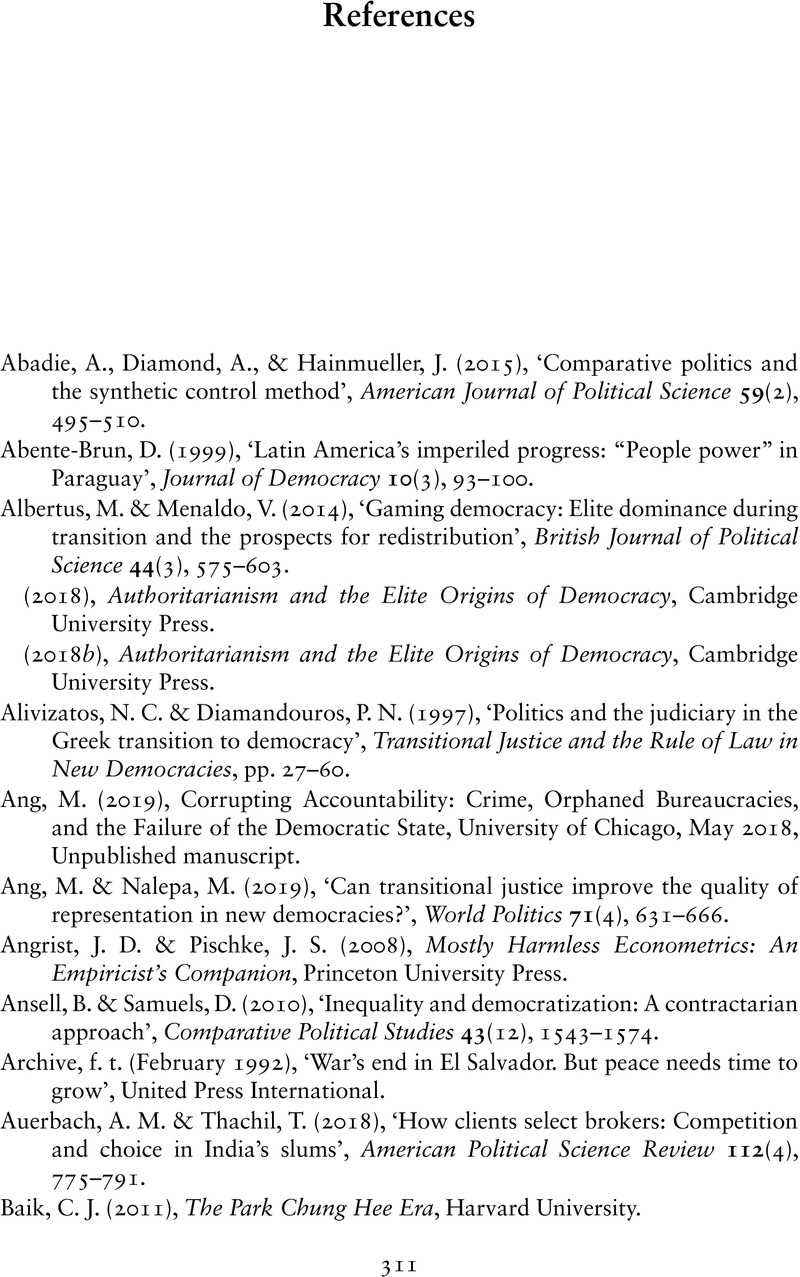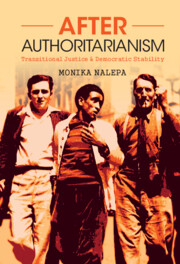References
Published online by Cambridge University Press: 15 September 2022
Summary

- Type
- Chapter
- Information
- After AuthoritarianismTransitional Justice and Democratic Stability, pp. 311 - 324Publisher: Cambridge University PressPrint publication year: 2022

